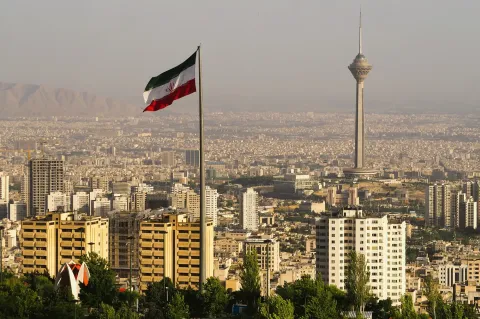
Long War Journal: TRIPP presents serious long-term risks for Iran
Unlike the model preferred by Azerbaijan and Turkey, TRIPP will function under Armenian law, be built and managed by a US-led consortium, and provide Azerbaijan with a transit route to its Nakhijevan exclave. In return, Washington has indicated that it will offer security assurances for Armenia against possible Azerbaijani aggression, while Baku is expected to move toward joining the Abraham Accords, Janatan Sayeh, a research analyst at the Foundation for Defense of Democracies, wrote in an article published in Long War Journal.
The publication states that on Aug. 9, Ali Akbar Velayati, an adviser to Khamenei, vowed to prevent the US-brokered deal from going forward and argued that it runs counter to the security of the South Caucasus. The next day, IRGC political deputy Yadollah Javani condemned the agreement, accusing Armenia and Azerbaijan of siding with Washington, London, and NATO at the expense of their regional neighbors.
As noted, for Iran, the final version of TRIPP averts the immediate danger of losing its overland connection to Armenia and, by extension, Europe. The deal preserves Tehran’s access to the Caucasus, the Black Sea, and European markets without full dependence on Turkey or Azerbaijan, an important safeguard against geopolitical isolation.
Nevertheless, the author of the article states that TRIPP presents serious long-term risks for Iran. A US-controlled corridor bypassing Iranian territory would diminish Tehran’s economic leverage and strategic relevance in regional transport projects. Europe’s pursuit of alternatives to Russian gas could make Azerbaijan and Turkey, now directly linked, more attractive energy partners. The corridor could also undercut the International North–South Transport Corridor’s value, particularly if it’s connected to China’s Belt and Road Initiative. Increased Turkish and Azerbaijani influence in the South Caucasus might embolden separatist or ethnic movements inside Iran, while reliance on Turkish transit could give Ankara political leverage. These dynamics would weaken Iran’s control over trade routes and reduce its bargaining power with Washington and Europe.
The publication states that Iran’s reaction to TRIPP reflects deep concern over the long-term presence of foreign powers in the South Caucasus and the shifting regional balance it may produce. While officials have called for regional coordination, Tehran’s ability to shape outcomes is constrained by sanctions, economic weakness, and limited influence over Armenia’s decisions. Yerevan appears motivated by security and economic gains from US-backed development, despite Iranian opposition. A heavy-handed response by Tehran could also damage relations with both Armenia and Azerbaijan, the latter closely aligned with Israel. The gap between Tehran’s rhetoric and its limited means reveals a regime trying to project resolve while steering clear of isolation or an unwinnable confrontation.


